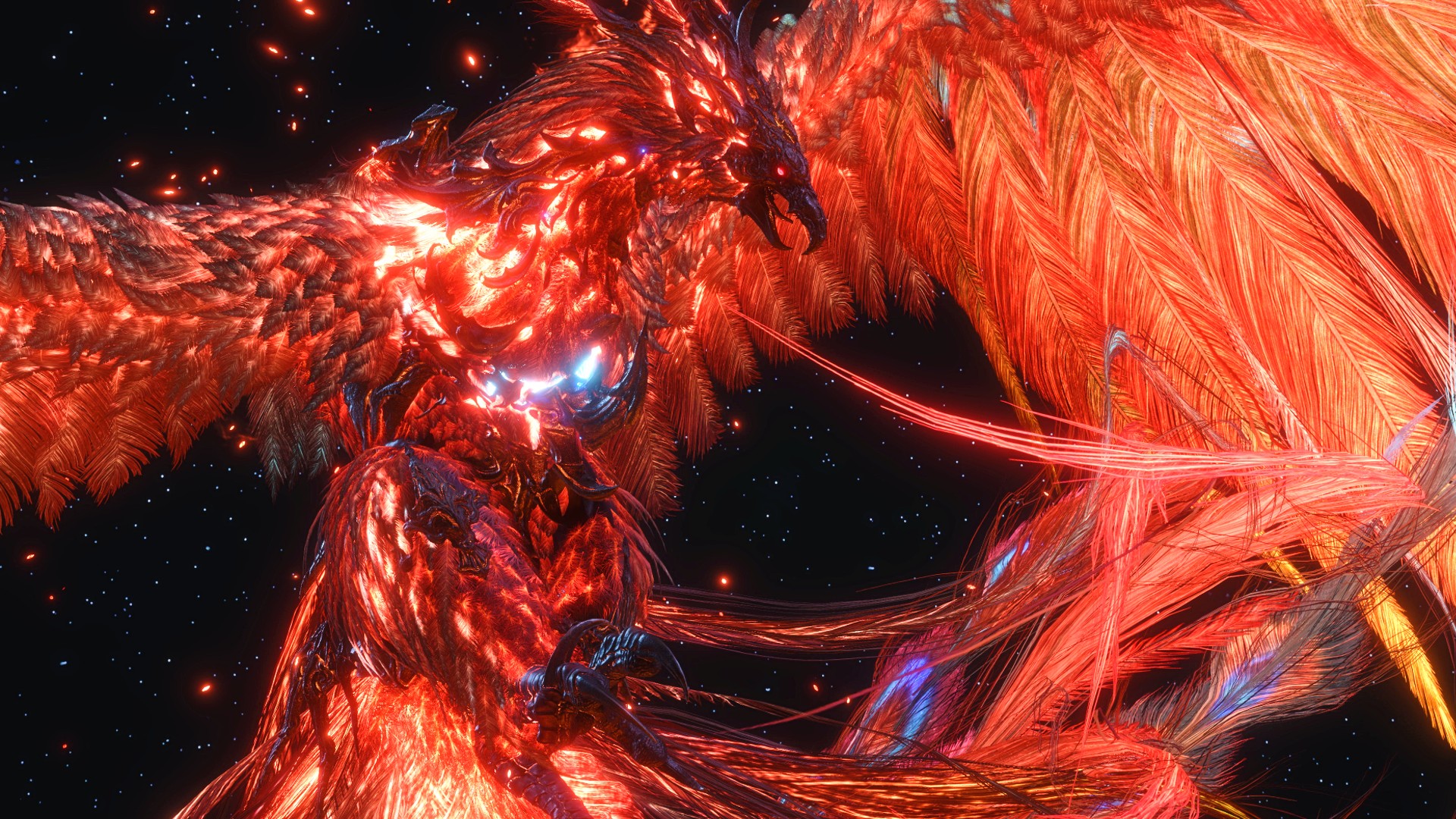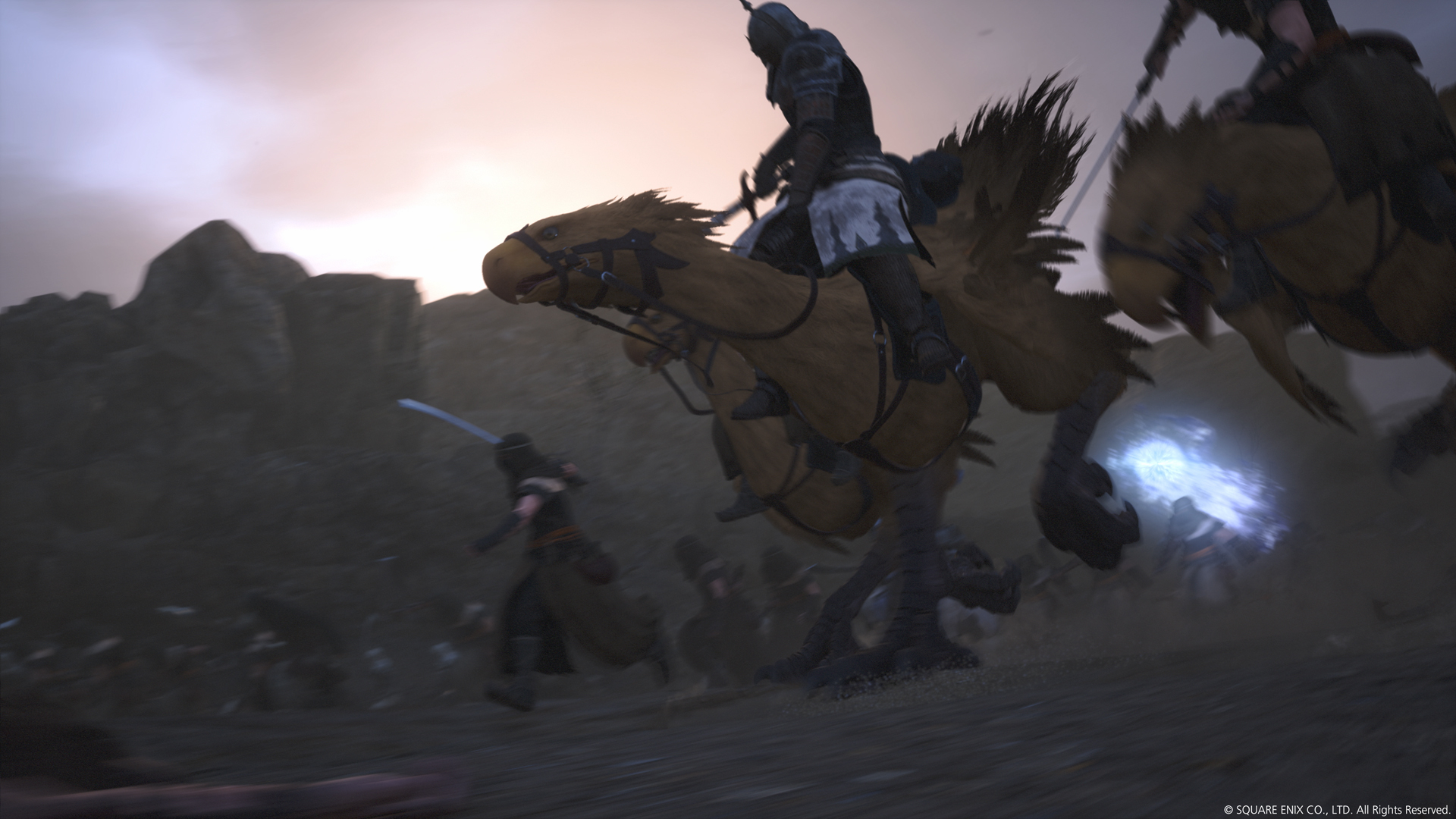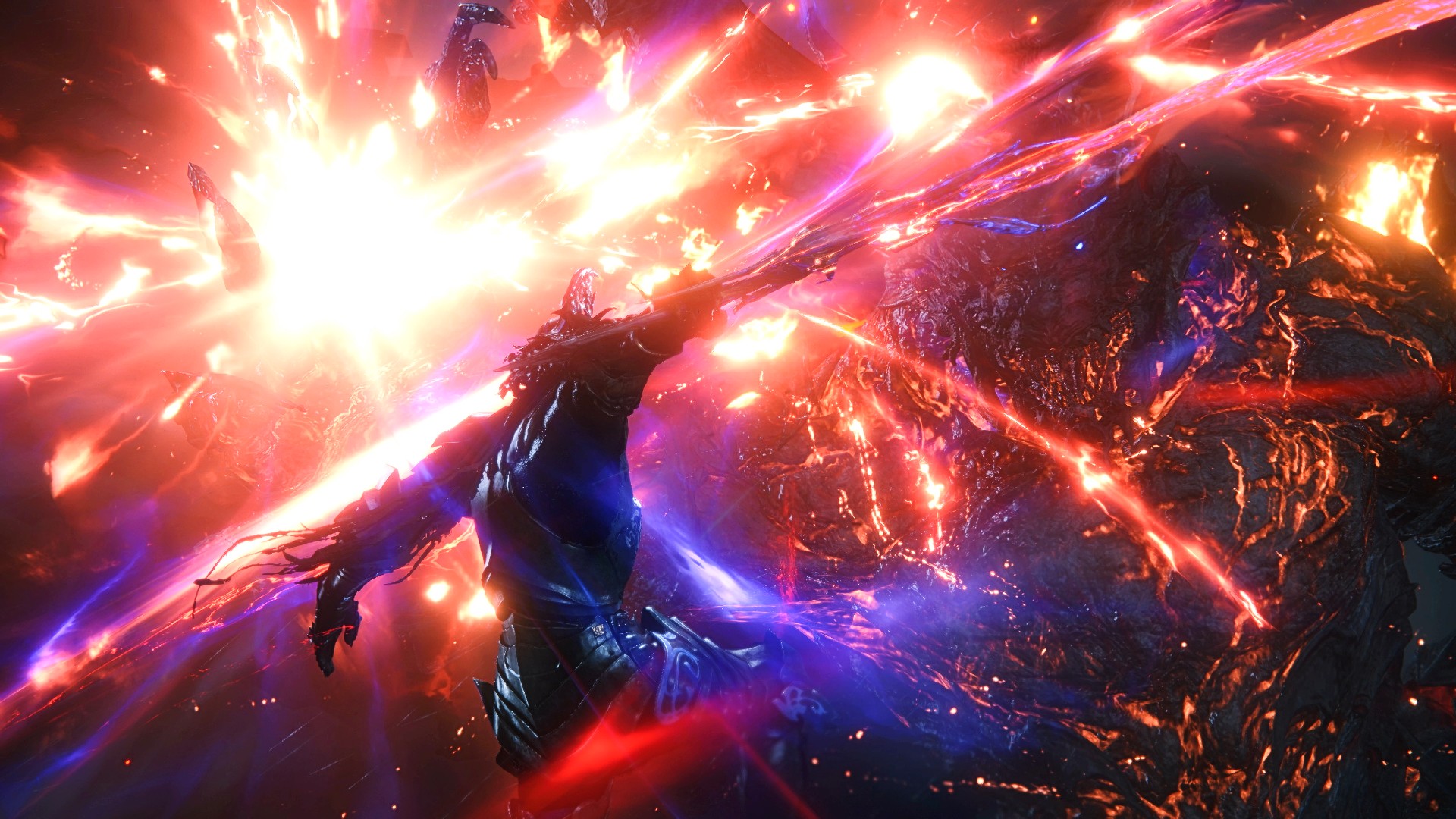
If Final Fantasy 16's combat is what breaks new ground for the series, it's the story that keeps it rooted in its past. Gone is the machinery born of magic that routinely appears in the series following its sixth entry, and in its place is a more concentrated focus on the medieval fantasies of the Famicom games that have only appeared periodically since.
Final Fantasy 16 takes place in a war-torn land where alliances between kingdoms are uneasy and betrayal for political advantage is swift, though the real conflict driving the narrative is an inner one brought about by a fledgling’s sense of devotion to their sibling.
Comparisons to Game of Thrones are tempting in the game's earliest hours, though the urge soon passes. Producer Naoki Yoshida has previously praised George R.R. Martin's work, though has spoken at greater lengths about another Square Enix alumni in Yasumi Matsuno who also takes inspiration from medieval history – you’ll find plenty of fan chatter about the links between Game of Thrones, Final Fantasy Tactics, and an infamous conflict within English history known as the War of the Roses if you care for extra reading.
While tapping into that same well for inspiration leads to Final Fantasy 16 offering few narrative surprises early on, the journey’s onset is filled with so much spectacle and camaraderie that it’s hard not to come along for the ride.
War of the Rosefields

We open with a titanic Eikon battle set amidst the skies, not unlike what you've seen in the marketing, though it's the cinematic breaks in the action on the ground that teases an empyreal adventure I can't wait to experience more of.
An early mission sees a fresh-faced Clive join two soldiers who guide him through an expedition to hunt diminutive goblins, soon interrupted by a giant monster you'll recognize from previous Final Fantasy games. "Shit!" one soldier bellows before breaks in the melee cast Clive into button-prompt action sequences that eventually see the beast slain. The accompanying soldiers are on hand to help with the fighting in between those moments and offer the odd observation about attack patterns, though seeing them gush about Clive's wet work during a banquet following the mission seals a wholesome feeling of camaraderie. It's a small joy, but Final Fantasy 16 seems filled with them. I hope to see the characters and plot evolve into something more itself, though the chemistry between each character already on display has excited me to see where it all goes.
The sidequests on offer during my time with Final Fantasy 16 are few, though manage to highlight the mood of Valisthea's inhabitants. One task sees Clive serve food to outcasts who share his gift, surprised to see a commune treat them equally. Another errand has the protagonist deliver a package for someone who doesn't think much of their ability at all. Physically you're doing little more than taking something from A to B, though seeing Clive interact with the world and it with him provides context to Valisthea that aids my curiosity to see more of it.
Eikon May Cry

The combat remains Final Fantasy 16's biggest departure from the series. Rather than take Final Fantasy 7 Remake's approach of integrating a blend of turn-based and real-time combat, FF16 unshackles itself from tradition. Clive seldom fights alone, though any ally on the battlefield marches to their own tune, save for Torgal, who can be commanded. The focus allows you to concentrate on stringing together combos reminiscent of combat director Ryota Suzuki's work on Capcom's Devil May Cry. Clive begins the game with the blessing of the phoenix, granting access to several moves such as one that pulls you toward an enemy. Unlocking the next Eikon's blessing, however, changes that command to one that brings the enemy to you. Switching between those ability sets can be done on the fly, leading to endless satisfying combo possibilities as you soar into an enemy and knock 'em into the sky before bringing them back down to earth.
The gear, too, has also been streamlined. Weapons and other status-influencing items are still here, though not to the number of previous Final Fantasy entries. It can be hard not to miss the tactical fluidity and build flexibility of games gone by, though Final Fantasy 16 succeeds in creating something that heightens the spectacle and feeling of adventure on offer while making something more approachable to a broader audience who might have passed it by otherwise.
Final Fantasy 16 could broaden the series' appeal through combat while delivering a story that captures what diehard fans love about the older games. Whether Square Enix can elevate or build upon gameplay ideas we've seen before, though, can only be answered after launch. Wherever Final Fantasy 16 ends up, Square Enix’s next looks like an adventure worth taking.
This is a special version made for media to experience, and contents may differ from the final version.







